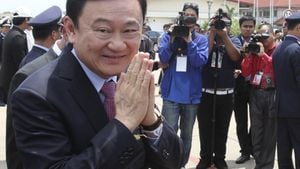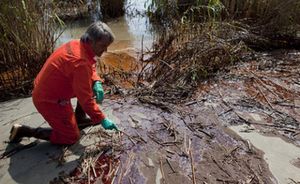The Ontario Provincial Election 2025 is shaping up to be pivotal, with candidates articulately defining their platforms as they seek to address pressing issues facing voters. Election day on February 27 is drawing near, and constituents across various regions are expressing their concerns, from healthcare trials to housing crises.
One noteworthy riding, Chatham-Kent—Leamington, covers a vast area of approximately 2,039 square kilometers and has 113,654 residents, according to Elections Ontario, referencing 2021 census data. With its rich agricultural sector, prominently featuring cash crops and being known as Canada’s greenhouse capital, the area also has significant manufacturing interests, particularly within the auto parts industry. Despite the attracting economic potential, constituents face pressing issues including affordable housing and healthcare accessibility.
Incumbent Trevor Jones of the Progressive Conservative Party is running for re-election. Citing his work within the community, Jones remarked, “Representing this community is a privilege. My focus remains on delivering results, whether it’s… standing with our farmers, or getting more homes built.” His aspirations explicitly target boosting housing development, improving healthcare, and strengthening agricultural job growth.
Jones won his first term decisively with 17,522 votes versus NDP's Brock McGregor, who garnered 11,163. This time around, he faces competition not only from fellow party member candidates but also NDP's Christian Sachs, Green’s Matthew Davey, and others including New Blue’s Rhonda Jubenville. Each contender brings unique challenges reflective of constituents’ varied interests.
Jubenville emphasizes her independence within the New Blue Party, stating, “I will have the freedom to vote separately on issues, not instructed, and table legislation outside of Doug Ford’s governance.” She expresses deep concern over homelessness, addiction, and mental health issues. “The province has sat fairly quiet on these issues,” she argued, highlighting the shortcomings of current provincial responses.
Christian Sachs, representing the Ontario New Democratic Party, is equally candid about the struggles facing the region under Conservative governance, declaring, “After seven years of Conservatives, life is harder for everyone.” He is committed to pressing for solutions to improve healthcare access, land development for housing, and ways to make life more affordable for residents across Ontario.
Notably, local concerns about environmental issues have also surfaced. Joanne Smith, active within the Muskoka region, lamented the lack of environmental focus among candidates, pressing the significance of sustainable practices. “[Government decisions impact the environment significantly. We need to prioritize these discussions,” she asserted, calling attention to the long-term ramifications of road salt and other pollutants.
Meanwhile, voter Steve Orser from the Parry Sound area articulated the dire need for affordable housing solutions, arguing, “The government needs to find ways to incentivize the local townships…” to encourage diverse and affordable housing constructions. He highlights the scarcity of available properties, particularly for workers who cannot afford to live where they work, exacerbated by zoning regulations preventing construction on private roads.
Candidates like Matt Richter from the Green Party echo the importance of addressing housing issues. Richter is vocal about working with non-profits to create 250,000 non-profit homes and 60,000 permanent supportive housing solutions. “We will work to increase housing supply by offering $25K zero-interest loans to homeowners,” he shared, positioning himself as proactive about housing shortages.
This election’s focus on healthcare funding is not overlooked. Voters from several regions, including Simcoe, express urgent desires for additional investments leading to the hiring of more healthcare personnel. Ontario PC leader Doug Ford mentioned commitments to connect families with primary care providers, acknowledging constituents' demand for heightened accessibility.
Importantly, the campaigning parties have also tuned their platforms to the 2025 Ontario Provincial Election. Surveyed voters have highlighted healthcare as one of the top priorities they wish candidates to address. Echoing the sentiments, Liberal Leader Bonnie Crombie has pledged to double payments for those on the Ontario Disability Support Program (ODSP), ensuring vulnerable populations receive necessary financial support.
Ontario NDP Leader Marit Stiles also introduced initiatives aimed at revitalizing community resources, such as her proposal to reinstate the popular COVID-era “staycation” tax credit aimed at bolstering local economies.
The urgency for change grows clearer as Ontarians prepare to cast their votes, highlighting the candidates' strategies to capture various community concerns. Each party’s platform informs what voters can anticipate should they choose to back them, as the upcoming election stands to significantly influence the socio-economic fabric of Ontario.



